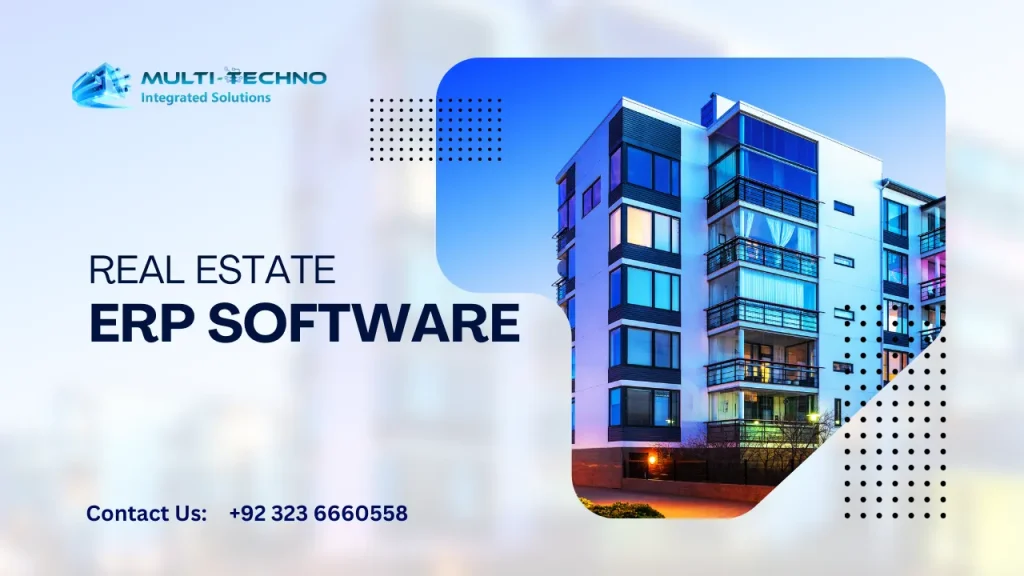Multi-Techno Integrated Solution

Table of Contents
ToggleTransforming the Real Estate Industry with a Real Estate Management System (REMS) in 2024
In today’s fast-paced world, efficiency and organization are crucial in all business sectors, including real estate. As technology has advanced, various systems have been developed to enhance business strategies. Among these, the Real Estate Management System (REMS) stands out as a game-changer, revolutionizing how real estate professionals manage their operations. With the integration of ERP (Enterprise Resource Planning), REMS has become even more powerful and efficient.
Understanding Real Estate Management Systems (REMS)
A Real Estate Management System (REMS) is an integrated software solution designed to manage all aspects of real estate operations. It provides tools to manage properties, tenants, leases, and financials, making it easier for real estate professionals to track and oversee their investments. By consolidating all essential information into one platform, a REMS enables better decision-making and increased efficiency.
The Role of ERP in REMS
When combined with REMS, ERP enhances the functionality of real estate management by providing additional tools for financial management, human resources, and supply chain management. This integration allows real estate professionals to have a unified view of their operations, leading to more efficient and effective management.
How REMS Contributes to the Real Estate Market
The property market is dynamic, with constant changes in demand, prices, and regulations. A REMS helps professionals stay ahead of these changes by providing real-time data and analytics. Property managers, for example, can use the system to monitor market trends, track rental income, and manage expenses, enabling them to make informed decisions that benefit their investments.
Benefits of a Real Estate Management System (REMS)
- Improved Efficiency: REMS automates tasks such as tenant management, lease tracking, and maintenance scheduling, reducing the time and effort required to manage properties.
- Enhanced Financial Management: The system offers comprehensive financial tools, including rent collection, expense tracking, and budgeting, ensuring property managers have a clear view of their financial health.
- Better Tenant Management: REMS provides a centralized database for tenant information, lease agreements, and communication records, improving tenant satisfaction by ensuring timely responses to inquiries and maintenance requests.
- Data-Driven Decisions: Analytical tools in the system aid property managers in understanding market trends and making data-driven decisions, which are crucial for staying competitive in the ever-changing real estate market.
- Scalability: Whether managing a few residential properties or a large portfolio of commercial real estate, a REMS can scale to meet the business’s needs.
Real Estate Investment and REMS
Real estate investment requires careful planning and management. To ensure profitable returns, investors must evaluate market trends, assess property values, and manage rental income. A REMS simplifies these tasks by providing comprehensive tools for investment analysis and management. For instance, investors can use the system to track property performance, calculate return on investment (ROI), and forecast future earnings.
Residential and Commercial Real Estate Management
Managing residential and commercial real estate presents different challenges. In residential property management, tenant satisfaction and lease management are crucial. On the other hand, commercial properties, including office buildings and retail spaces, require attention to lease negotiations, tenant mix, and property maintenance.
A REMS caters to both properties by offering specialized tools and features. The system manages tenant communications, tracks lease renewals, and schedules maintenance for residential real estate. In commercial real estate, it provides tools for optimizing space utilization, monitoring tenant performance, and managing complex lease agreements.
Adapting to Real Estate Trends
There are always new trends and shifts in the Real Estate Industry. These trends can significantly impact how properties are managed and marketed. For instance, the rise of remote work has increased demand for flexible office spaces, while the growing interest in sustainable living has driven the development of eco-friendly residential properties.
A REMS helps professionals stay ahead of these trends by offering insights and tools to adapt quickly. By utilizing information examination, property administrators can recognize arising patterns, change their methodologies, and stay on the lookout.
Conclusion
Adopting a Genuine Domain Administration Framework (REMS) is fundamental for advanced genuine domain experts. It not as it were streamlines operations but also improves decision-making and moves forward by and large proficiency. By integrating all aspects of property management into one platform, a REMS allows professionals to focus on growing their investments and staying competitive in the dynamic property market. With the integration of ERP, REMS becomes an even more powerful tool, providing a unified view of all business operations and leading to greater success in the real estate industry.
About Us
ERP software and systems are designed and implemented by Multi-Techno, a registered company. By combining data from financials, sales, CRM, inventories, and operations, businesses can increase productivity, make better decisions, and increase profitability with the aid of our ERP System, a single, integrated software platform.
Quick Links
Contact Us
Office # 100, 101 Second Floor Kohinoor 1, Faisalabad, Pakistan
